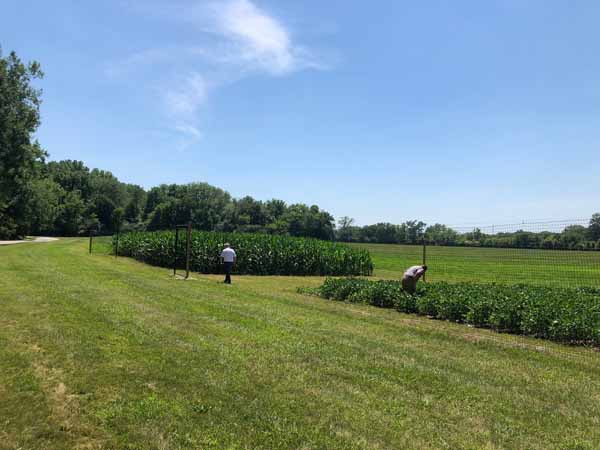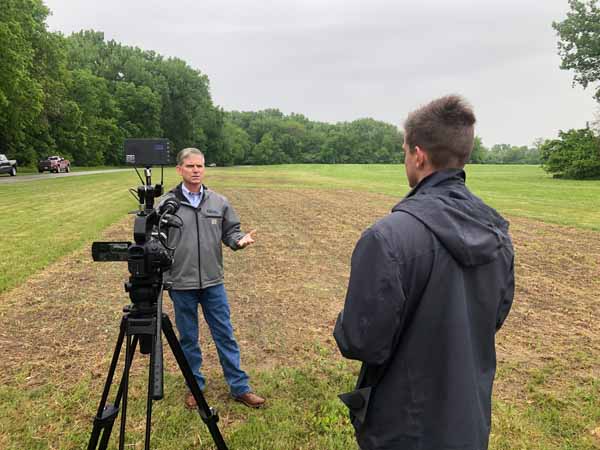Measuring Water Quality + Ensuring Safe Drinking Water for DSM Customers
Making measurable progress in the water quality of Iowa’s rivers, lakes and streams will likely involve one of three tactics based on the current political and business landscape.
More likely than not, it will take a combination of changing public policy through legislative action; litigation to help strengthen environmental laws; and collaboration among trusted partners to blaze a trail and create a template of success that can be followed and replicated when public policy changes do occur. In our history, Des Moines Water Works (DMWW) has pursued all three of these tactics to ensure safe drinking water is readily available to our 600,000 customers across the metro.
Real, measurable improvement in the quality of our rivers, lakes and streams will require a shift in public policy, but that’s a story for another day.
Today, our question is clear — how does Des Moines Water Works, the largest drinking water utility in the state, advocate for clean water in a space where we have been met with resistance? This is a question I took time to consider when I was named Des Moines Water Works’ CEO two years ago.
DMWW’s External Affairs Manager Jennifer Terry and I met with dozens of individuals and groups who are working in the water quality space. After those meetings, Jennifer and I settled on a strategy that is based upon building relationships and collaborating with trusted partners who share our goals for improved water quality and our values for improvement through sustainable practices.
Sustainable Practices
Over the course of years of exploratory meetings, Landus has risen to the top as one of those partners that shares our goals and our values related to improving source water quality in a sustainable manner. We are demonstrating this unlikely collaboration with “Plots in the Park,” which Landus designed to demonstrate the types of sustainable agricultural practices that will benefit landowners by keeping soil in place and, at the same time, provide benefit to downstream users by keeping agricultural contaminants out of rivers and streams.
Landus’ agronomists planted three plots — corn, soybeans and cover crops consisting of red clover and perennial rye — in Des Moines Water Works Park. Before the plots were planted, Landus took soil samples to test the composition of the soil to determine the appropriate amount of fertilizer that needed to be applied, being cognizant not to over-apply.
While the demonstration plots are small — 300 square feet in size, or .007 acres inside an area of DMWW’s 1,500-acre Water Works Park that is unused — we believe their representation is significant in the type of trusting relationships that can be developed when partners are truly committed to improving water quality.
The plots were developed and implemented with guidance and oversight from Des Moines Water Works’ horticultural staff and engineers. The DMWW team wants to ensure that planting, harvesting and maintaining the plots will have no effects on Des Moines Water Works’ operations. Specifically, that the plots must not affect source water quality in Water Works Park. The park acts as a giant filter and is our first step in the water treatment process. Plots in the Park will help demonstrate that sustainable, well-managed agricultural practices can exist without negatively affecting local water resources if appropriate measures are taken to protect downstream users.
We believe we have found an agricultural partner that is a good fit for the work we want to support in our watersheds. Those at the helm at Landus have shown they share a vision for improving water quality in our state’s rivers, lakes and streams at the same time supporting and educating the farmers and landowners they serve.
We’re also excited that through this innovative project, Landus will bring Iowa farmers to Water Works Park where they can hear our story and understand the challenges we face. We find that when farmers hear our story and see the tools, equipment and processes required to deliver safe clean drinking water to one-fifth of Iowa’s population, it provides a powerful message about how activities upstream impact our water resources and the quality of life downstream.
DMWW is committed to leading and advocating for improved surface water quality in the state of Iowa and in the Raccoon and Des Moines River watersheds. We understand that meaningful improvement will be built upon partnerships such as this one with Landus, which will demonstrate scalable, real-world implementation of modern agricultural best practices.